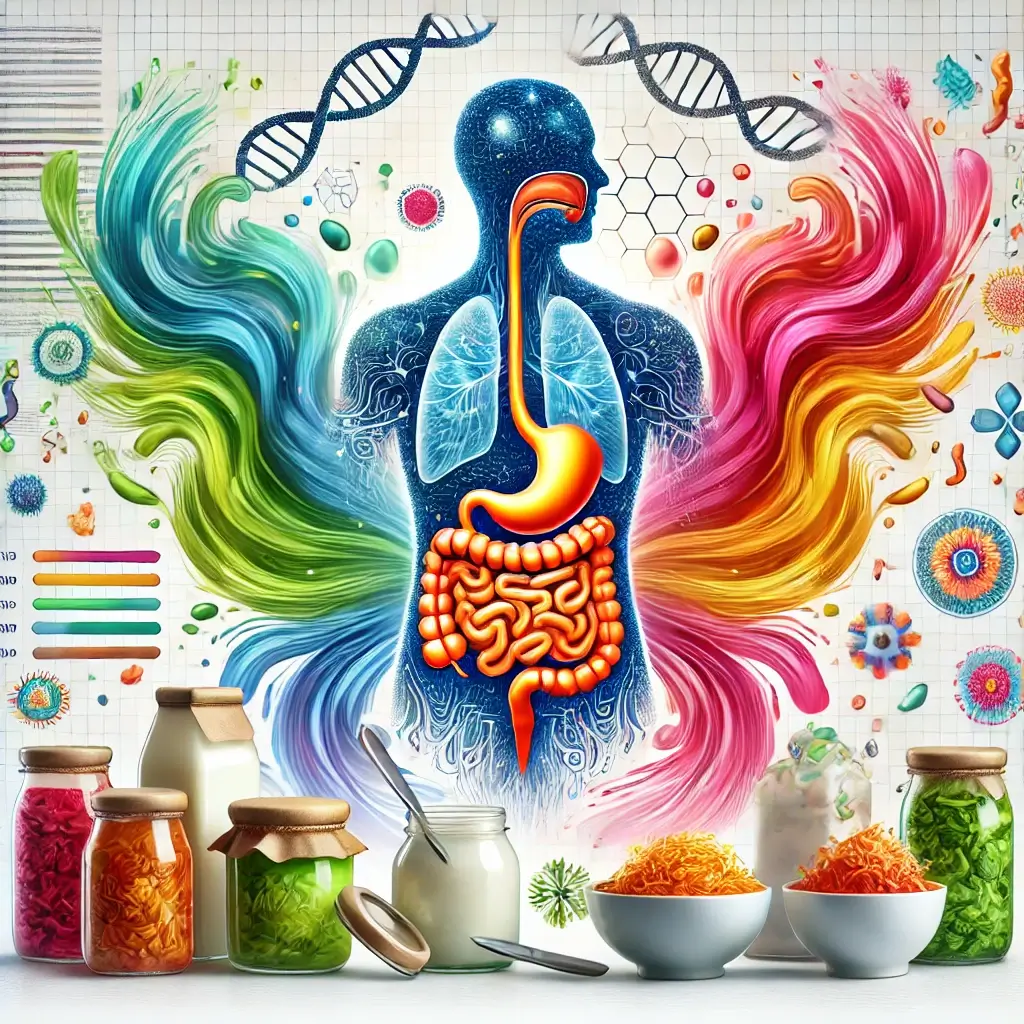Understanding the Human Gut Microbiome
The human gut is a thriving hub of microbial activity, home to trillions of microorganisms collectively known as the gut microbiome. This complex community plays a pivotal role in numerous bodily functions, from digesting food and absorbing nutrients to regulating the immune system and even influencing mood and cognition. Increasingly, scientific research is uncovering how disruptions to this delicate ecosystem can lead to a host of health issues, ranging from digestive disorders to systemic inflammation and mental health challenges.
Introduction to Probiotics and Their Role
Probiotics, defined as live microorganisms that provide health benefits when consumed in appropriate amounts, have emerged as a cornerstone for promoting gut health. Found in fermented foods such as yogurt, kimchi, and sauerkraut, as well as in dietary supplements, probiotics are celebrated for their ability to support the gut microbiome’s balance. However, not all probiotics are created equal. Different strains have unique properties, targeting specific aspects of gut and overall health.
Exploring the World of Probiotics
This article delves into the fascinating world of probiotics, exploring the scientific underpinnings of various strains, their health benefits, and practical strategies for integrating them into daily life. Whether you’re navigating digestive troubles, aiming to bolster your immunity, or simply seeking to optimize your well-being, understanding probiotics is key to making informed decisions tailored to your needs.
Understanding Different Probiotic Strains
Not all probiotics are universally effective; their benefits are often strain-specific. Scientific studies highlight the therapeutic potential of several key strains:
Benefits of Lactobacillus Strains
Lactobacillus rhamnosus (LGG): One of the most researched probiotic strains, LGG is effective in managing acute diarrhea in children. A study published in The American Journal of Gastroenterology demonstrated that LGG can significantly reduce the duration and severity of diarrhea caused by infections (Guarner et al., 2017).
Lactobacillus casei: This strain is renowned for its role in alleviating symptoms of irritable bowel syndrome (IBS) and enhancing lactose digestion. Research indicates that L. casei can improve bowel regularity and reduce bloating in IBS patients (Khapalia et al., 2017).
Benefits of Bifidobacterium Strains
Bifidobacterium longum: Known for its anti-inflammatory properties, this strain has been shown to alleviate symptoms of IBS with constipation. A 2018 study in the Journal of Clinical Gastroenterology reported significant improvements in stool frequency and consistency among patients receiving B. longum supplementation (Eslamilou et al., 2018).
Bifidobacterium breve: Frequently used in infant formulas, B. breve is effective in reducing colic and promoting gut health in children. It also supports intestinal barrier integrity in adults, protecting against leaky gut syndrome (Holscher, 2017).
The Role of Saccharomyces boulardii
Unlike bacterial probiotics, this beneficial yeast strain thrives in harsh gastrointestinal conditions. Clinical studies reveal its efficacy in preventing antibiotic-associated diarrhea and managing traveler’s diarrhea. Its unique resilience and ability to restore gut balance make it a valuable addition during antibiotic treatments (McFarland, 2015).
Latest Developments in Probiotic Research
Probiotics have been a subject of intensive research in recent years, with new discoveries continuously emerging. Notable advancements include:
Mental Health and Gut-Brain Connection
The gut-brain axis is a bi-directional communication system linking the gut and the brain. Research published in Nature Microbiology has identified specific probiotic strains, such as Lactobacillus helveticus and Bifidobacterium longum, that can reduce symptoms of anxiety and depression by modulating gut-brain interactions (Cryan et al., 2020).
Impact on Weight and Metabolism
Probiotics are increasingly recognized for their role in metabolic health. A 2023 meta-analysis in Frontiers in Nutrition revealed that Lactobacillus gasseri supplementation could help reduce abdominal fat and improve markers of metabolic syndrome (Kondo et al., 2023).
Benefits for Children’s Health
In children, probiotics are being studied for their potential to prevent allergies and eczema. A 2022 randomized controlled trial found that infants who consumed Bifidobacterium breve had a reduced risk of developing eczema during their first year of life (Matsuki et al., 2022).
Guidelines for Using Probiotics
To maximize the benefits of probiotics, it’s essential to make informed choices:
- Consult a Healthcare Professional: Probiotics are not one-size-fits-all. Discuss your health goals and any medical conditions with a professional to identify the most suitable strains and dosages.
- Strain Specificity: Pay attention to the strains listed on probiotic products. Choose those with demonstrated efficacy for your specific health concerns.
- Incorporate Probiotic Foods: Supplement your diet with naturally probiotic-rich foods like kefir, miso, and kombucha. These provide additional nutrients and foster gut health.
- Maintain a Balanced Diet: Probiotics work best alongside a diet rich in fiber, which serves as a prebiotic, feeding the beneficial bacteria in your gut.
Final Thoughts on Probiotics
Probiotics represent a promising frontier in gut health and overall wellness, but their benefits are highly strain-specific and influenced by individual gut microbiota. By understanding the unique properties of various strains and tailoring their use to your health needs, you can harness the full potential of these remarkable microorganisms. Whether through supplements or naturally probiotic-rich foods, incorporating probiotics into your lifestyle can pave the way for a healthier gut and a happier, more balanced life.
Research Citations
Guarner, F., et al. (2017). Probiotics for the treatment of acute infectious diarrhea. The American Journal of Gastroenterology, 112(2), 201–225.
Khapalia, S., et al. (2017). Lactobacillus casei Shirota (LcS) for maintaining health. Cochrane Database of Systematic Reviews, (12).
Eslamilou, S. H., et al. (2018). The effect of Bifidobacterium longum supplementation on relieving irritable bowel syndrome with constipation: A randomized, double-blind, placebo-controlled clinical trial. Journal of Clinical Gastroenterology, 52(1).
Cryan, J. F., et al. (2020). Probiotics and the microbiota-gut-brain axis: Impacts on psychology and behavior. Nature Microbiology.
Matsuki, T., et al. (2022). Prevention of eczema in infants with Bifidobacterium breve supplementation: A randomized controlled trial. Pediatric Research.
